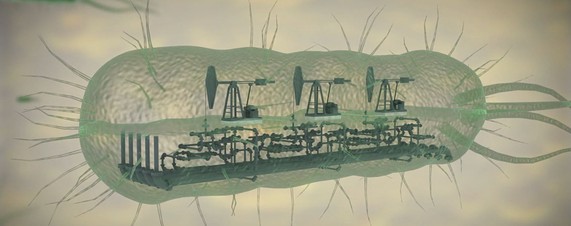A breakthrough research led by Professor Sang Yup Lee of KAIST Department of Chemical and Biomolecular Engineering verified the production of biofuel gasoline through genetically modified Escherichia coli (E. coli) bacteria. The finding was published in the prestigious scientific journal Nature on September 30.
Compared to heavier diesel fuel, gasoline is a high-premium light oil product used mainly in transportation combustion engines. Gasoline is a vital oil product in today’s carbon-based energy economy. Yet, the increasing interest in technologies for global sustainability is leading to the replacement of conventional fuels with biofuels. Ongoing biofuel researches attempt to provide a solution by synthetically producing carbon fuel though biological methods.

This research was the first successful experiment to produce gasoline with genetically modified bacteria. Researchers were able to achieve this feat by tackling the problem with a double-sided approach. The first step was deleting the fadE gene, which regulates the degradation of fatty acids, in the E. coli specimen. Through this procedure, loss of oil precursor was prevented. The second step was deleting the fadR gene, which lets the organism regulate the synthetic pathway that produces fatty oil at a normal rate. With these changes, researchers could then push the bacteria into petroleum production overdrive.
By feeding the genetically modified organism with glucose, only 580.8 milligrams per liter of petrol was synthesized. With the technology so far, mass scale production is still looming in the horizon. Yet academia recognizes its potential in verifying a different approach of producing gasoline, which is so widely used in the energy economy.
“The significance of this breakthrough is that you don’t have to go through another process to crack the oil created by E. coli to produce gasoline. We have succeeded in converting glucose or waste biomass directly into gasoline,” Professor Lee quoted in an interview for The Wall Street Journal. “The gasoline we’re generating could be used in your car. It has identical composition and chemical properties to [those of] conventional petrol.”
Shin Hum Cho
shinhum@gmail.com

